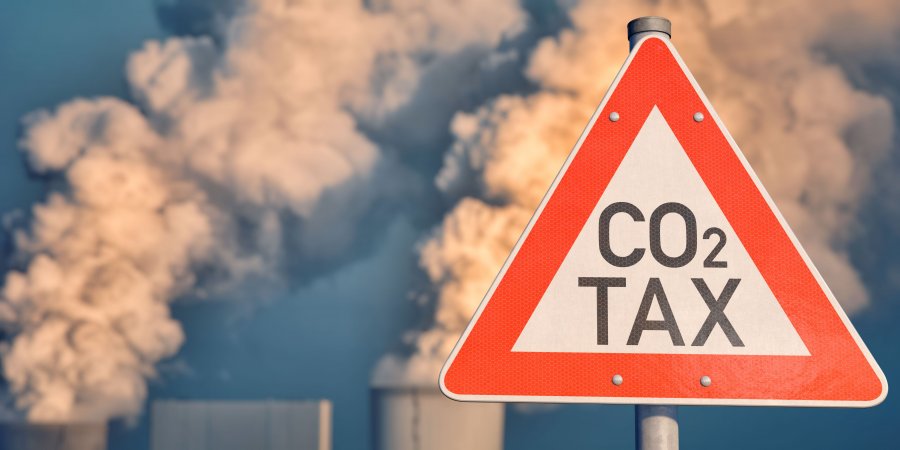The tax burden on Ukrainian producers will be over 1 billion euros annually under the CBAM (Carbon Border Adjustment Mechanism).
Experts from the European Business Association (EBA) came to this conclusion in their calculations.
It will be recalled that In May, the European Parliament’s Committee on Environment, Public Health and Food Safety (ENVI) finalized its vision for CBAM design that will be put to a vote in the Parliament on 6 June.
the updated CBAM version has stricter requirements compared to the one published by the European Commission last July. Along with cement, fertilizers, iron, steel, aluminum, and electricity, now CBAM will also cover hydrogen, polymers, and organic chemicals imported into the EU, and eventually cover all industries that fall under the EU Emissions Trading System (EU ETS).
Along with direct CO2 emissions, indirect ones will be subject to taxation, particularly from the use of electricity in the production process.
The transition period for CBAM, during which producers will have no financial obligations, will last two years instead of three and the mechanism will be operational from January 1, 2025.
Besides, the proceeds from the sale of CBAM certificates will go to the EU budget, but the EU must provide financial assistance to decarbonize the least developed countries, which according to the UN classification include poor countries in Asia and Africa, Ukraine is not one of the latter.
For the calculation, EBA experts took into account the latest prices per ton of CO2 emissions, ie € 84, as well as imports of Ukrainian products from EU countries.
Taking into account these factors, the tax burden on Ukrainian producers will be over 1 billion euros annually, according to the association. For example, exporters of cement products will pay an additional 3.2 million euros, fertilizers – 74.2 million euros, organic chemicals – 17.7 million euros, polymer products – 162.5 million euros, metallurgy – 961.3 million euros annually.
"Although the EU, the UK, Canada, and the US lift tariffs on products made in Ukraine, Ukrainian producers may face a new non-tariff barrier in the form of CBAM, reporting on which will start in 2023. However, given russia′s military aggression launched in late February, the introduction of a system for monitoring, reporting, and verifying greenhouse gas emissions as a first step towards establishing a market for greenhouse gas quotas in Ukraine has been suspended. As a result, Ukrainian companies will not be able to verify their CO2 emissions and submit the relevant CBAM declarations," said Olga Boiko, EBA Industrial Ecology and Sustainable Development Committee Coordinato.
According to the expert, if nothing changes, it will lead to the application to Ukraine of the average carbon content of products that are subject to CBAM regulation.
"As a result, Ukrainian products will lose their competitiveness in the EU market, whose share in 2021 reached 40% of total exports. This is a real force majeure that should be considered by the EU and reflected in the postponement of the CBAM application to all sectors of Ukrainian exports," Boiko stressed.
It is noted that for two years now, the EBA has been systematically addressing official letters to government officials with proposals for CBAM and the need to involve business in the existing working group at the Office of the Deputy Prime Minister for European and Euro-Atlantic Integration or create a new one, at the Ministry of Economy.
The association expressed hope that the voice of business will be heard and the trade liberalization between Ukraine and the EU will continue.
Earlier EcoPolitics reported that The Committee on the Environment has voted in the European Parliament for the Border Carbon Regulatory Mechanism (CBAM) and the reform of the Emissions Trading Scheme (ETS), which are tools to achieve the EU's climate targets under the Fit for 55 package.
We will add that the European steel association Eurofer criticized the intention of the European Parliament change the emissions trading system.





